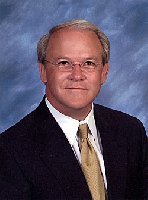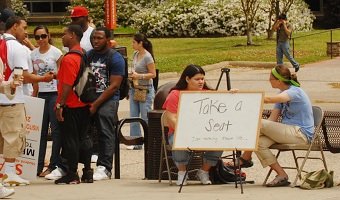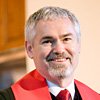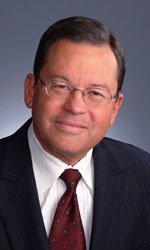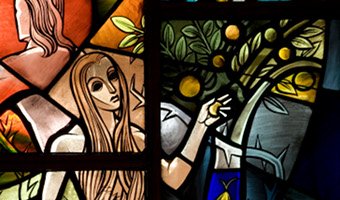End of ‘Lost’ may prompt more questions than answers
WASHINGTON, D.C. (RNS) — Is it a show about a modern-day shipwreck, featuring misfit castaways trying to survive increasingly bizarre circumstances on an island somewhere in the Pacific Ocean? Or is Lost really a show about faith, redemption, evil, predestination, love, suffering, free will and human understanding of the supernatural?
Either way, when Lost ends its six-season run on Sunday, May 23, what will remain is the debate — especially on thousands of blogs — about the religious themes sprinkled throughout the hit series.

Because of its complicated plot lines and character development, Lost virtually precludes drop-in viewing, giving it a smaller but dedicated fan base of between about 10 and 15 million viewers per episode, according to Nielson ratings.
So, while those 290 million Americans who don't watch "Lost" each week likely care very little about the show's religious symbolism, inferences or foreshadowing, Losties, as they're often called, eat the stuff up.
"By the end of first season, we began to see Lost cultivate a thematic debate about two ways to view the world," said Jeff Jensen, senior writer for Entertainment Weekly whose "Totally Lost" blog is a Losties must-read.
The options? "Either purely naturalistic terms that only science can explain," he said, or "a supernaturalistic view of the world in which we live in a fundamentally spiritual universe that deals with what theologians and philosophers call the ultimate concerns of man — who are we, who made us?"
In purely rational terms, "Lost" is about a group of people who survive a plane crash on a tropical island, and the struggle to survive and escape. The characters include a woman on the lam for killing her father, an alcoholic surgeon, a torturer, a drug-addicted rock star and a con man, among other tough people to love.
"They are deeply broken people, but you fall in love with them," said Chris Seay, pastor of Ecclesia church in Houston and author of The Gospel According to Lost. "… We want these people to be redeemed and changed for the better."
In the first season, much of the action revolved around flashbacks o the various characters' lives and set a foundation for how their behavior on the island could be redemptive. During that first season, as the writers teased viewers with hints of who was good and who was evil, many bloggers embraced the theory that the island was purgatory.
Each of the characters in the plane crash had died, the theory went, but the series would follow their attempts to escape purgatory by coming to terms with their lives, thereby purifying their souls as a way to gain entrance to the afterlife. That theory was debunked by the show's creators.
"They said the island wasn't purgatory, but it had elements of purgatory," said Tony Rossi, a radio host and producer for The Christophers, a nonprofit Catholic organization, who writes about faith and culture on his blog, "The Intersection."
Rossi said there are some definite Catholic allusions in the series, including one in which a character (Charlie, the drug-addicted rock star) sacrifices his life for the woman he loves and her child while making a sign of the cross as he drowns.
In a more recent episode, Rossi said, a character named Benjamin Linus, who had been set up as the series villain, confesses his sins to another character who was standing in for God, before being accepted by the rest of the characters.
"That looks very much like the Catholic sacrament of reconciliation in which a priest, standing in for God during someone's confession, allows the person to be reconciled to the rest of the community," Rossi said.
Sarah Pulliam Bailey, the online editor at Christianity Today and a Lost fan, said other theological ideas have been referenced by the show's writers. One, she said, is predestination, made famous by the 16th-century theologian John Calvin.
"Are these characters' paths laid out or do they get to choose their paths?" said Bailey. "That been a debate among theologians a long time."
Jensen, who visited the set of the Lost finale, said the big-picture religious and philosophical themes are only likely to heighten as the series draws to an end.
"It does seem that Lost believes that the world is fundamentally piritual, that we are not just stuff, we are not just animals," Jensen said. "But I think that it's also saying that no one explanation has ever gotten it right. And they're not about to declare who is correct."
